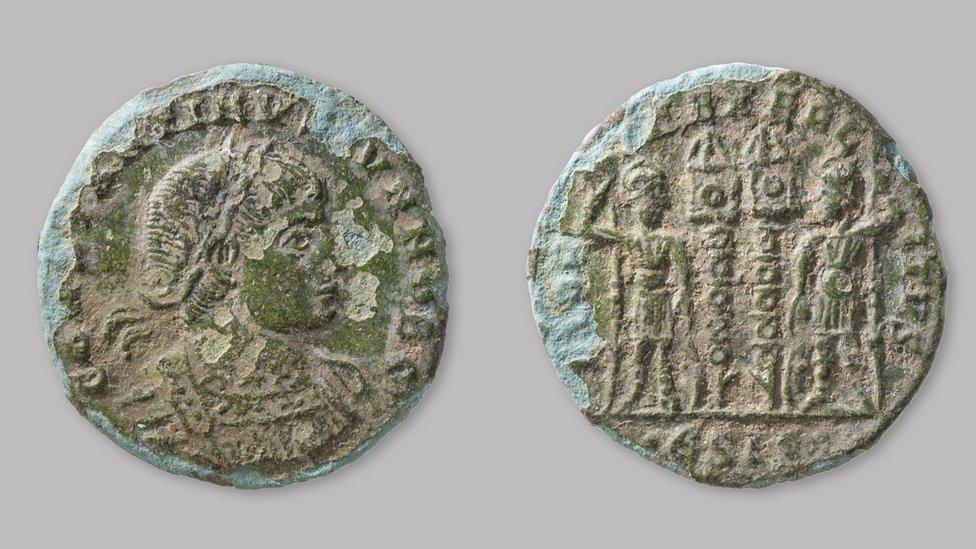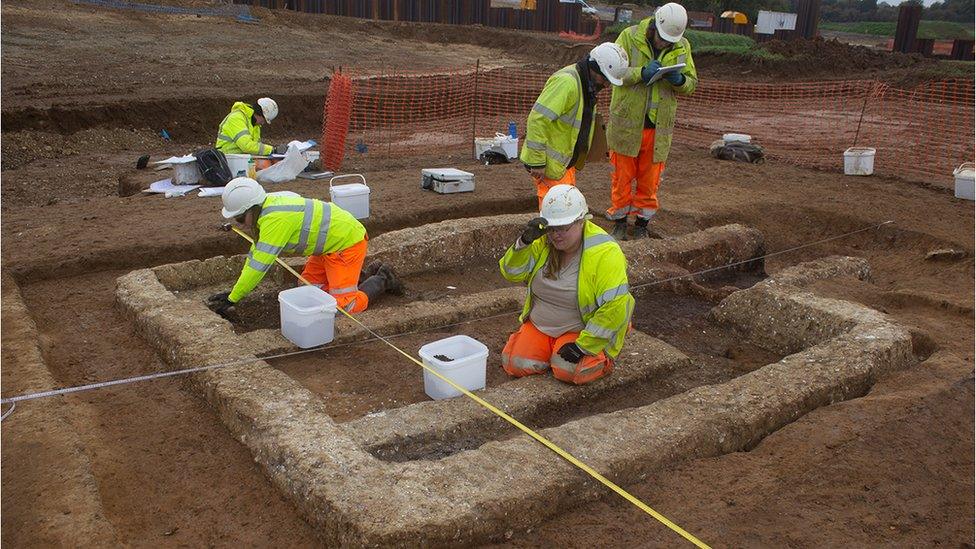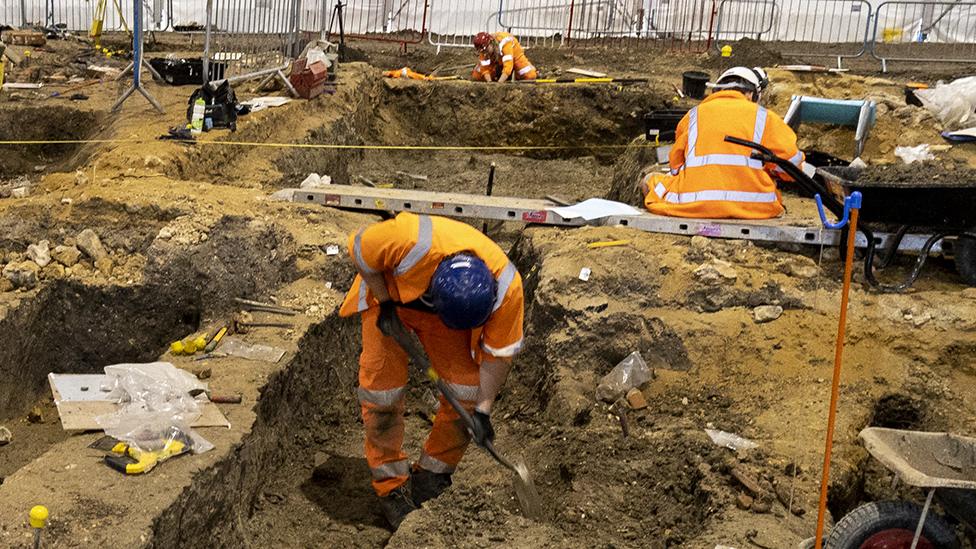Iron Age and Roman artefacts found at site of A120 Little Hadham bypass
- Published

Roman coins dating from between AD330 and AD348 were discovered by archaeologists working on digs close to the Little Hadham bypass route
The foundations of Iron Age houses and a host of Roman coins were among discoveries made during the construction of a new bypass.
The finds resulted from archaeological digs at the site of the A120 Little Hadham bypass, external in Hertfordshire.
The digs took place in 2019 after surveys showed prehistoric and Roman remains were likely to be found.
Sarah Cobain, leading the project, said such discoveries gave "great insight" into life 2,000 years ago.
The archaeologists discovered the foundations of Iron Age houses dating back to 300BC, along with Roman remains dating to the 1st and 4th centuries AD.

The digs took place in 2019 after surveys showed prehistoric and Roman remains were likely to be found
Among these was a small cemetery which included the remains of four burials and 16 cremations.
A collection of 72 Roman bronze coins was also found, dating back to between AD330 and AD348.
Ms Cobain said: "For me, the standout find was the Roman period corn dryer.
"This structure, specifically the preserved plant remains found within it, can tell us a great deal about the way in which the landscape was farmed.
"Finding out what was being eaten gives us such a great insight into the daily lives of the people that occupied this part of Hertfordshire, nearly 2,000 years ago."
The new road is due to be completed this winter.

Find BBC News: East of England on Facebook, external, Instagram, external and Twitter, external. If you have a story suggestion email eastofenglandnews@bbc.co.uk, external
Related topics
- Published14 September 2021

- Published8 September 2021
